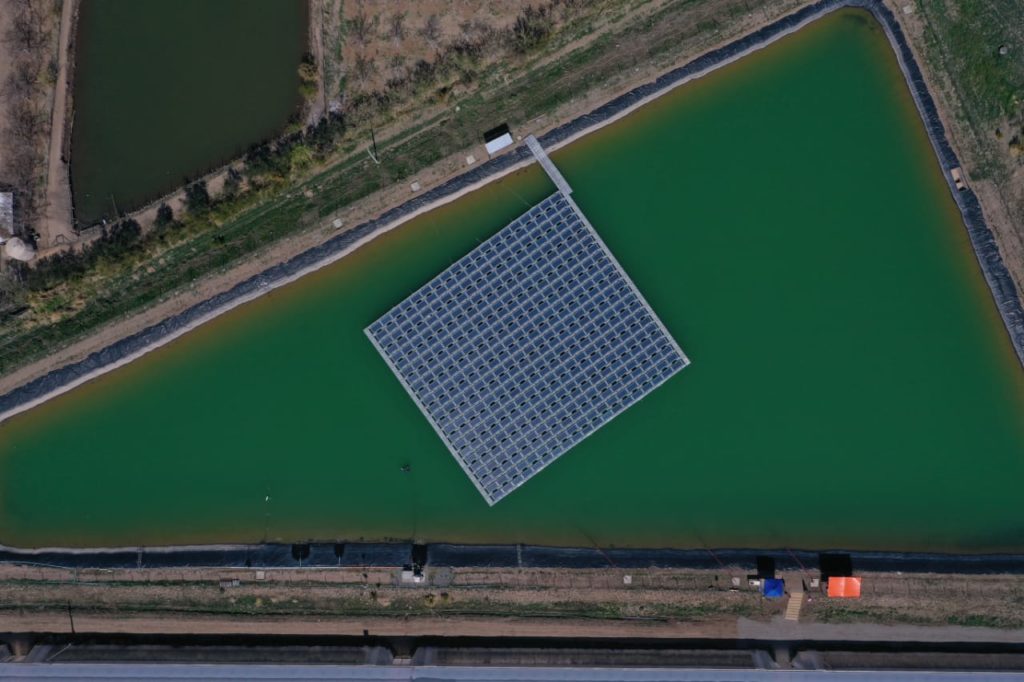From pv magazine LatAm
Chilean Energy Minister Juan Carlos Jobet inaugurated the largest grid-connected floating solar plant in Chile last week.
Chilean developer Solarity built the plant across 1,500 square meters of a reservoir at a dam owned by the Mataquito-Hortifrut agricultural company. The floating array, which features 456 PV modules, is now connected to the national distribution network under Chile's net billing scheme, which allows plant owners to source 100% of their energy needs from their projects, while selling excess power to the grid.
The Mataquito-Hortifrut plant's output is equivalent to the monthly electricity consumption of 116 households, or around 626,400 kWh. Juan Ignacio Allende, corporate general manager of Hortifrut, said that the project is the first floating PV plant to be connected to the Chilean electricity grid, and the company's eighth operational solar project.
“We are committed to … advancing the development and implementation of renewable energy in our fields, throughout the country, to replace at least 50% of the energy that we currently use,” he said.
Chile's first floating PV plant was built by French floating PV specialist Ciel&Terre and Chilean integrator Lenergie in March 2019. The standalone project was deployed at a copper mine owned by multinational mining company Anglo American.
South America has the potential to deploy 36 GW of floating solar capacity, according to a recent report by the World Bank. The region’s largest operational floating PV system is a 1 MW installation built by power producer Companhia Hidroelétrica do São Francisco (Chesf) at a 175 MW hydroelectric dam in Sobradinho, in the Brazilian state of Bahia.
This content is protected by copyright and may not be reused. If you want to cooperate with us and would like to reuse some of our content, please contact: editors@pv-magazine.com.



By submitting this form you agree to pv magazine using your data for the purposes of publishing your comment.
Your personal data will only be disclosed or otherwise transmitted to third parties for the purposes of spam filtering or if this is necessary for technical maintenance of the website. Any other transfer to third parties will not take place unless this is justified on the basis of applicable data protection regulations or if pv magazine is legally obliged to do so.
You may revoke this consent at any time with effect for the future, in which case your personal data will be deleted immediately. Otherwise, your data will be deleted if pv magazine has processed your request or the purpose of data storage is fulfilled.
Further information on data privacy can be found in our Data Protection Policy.